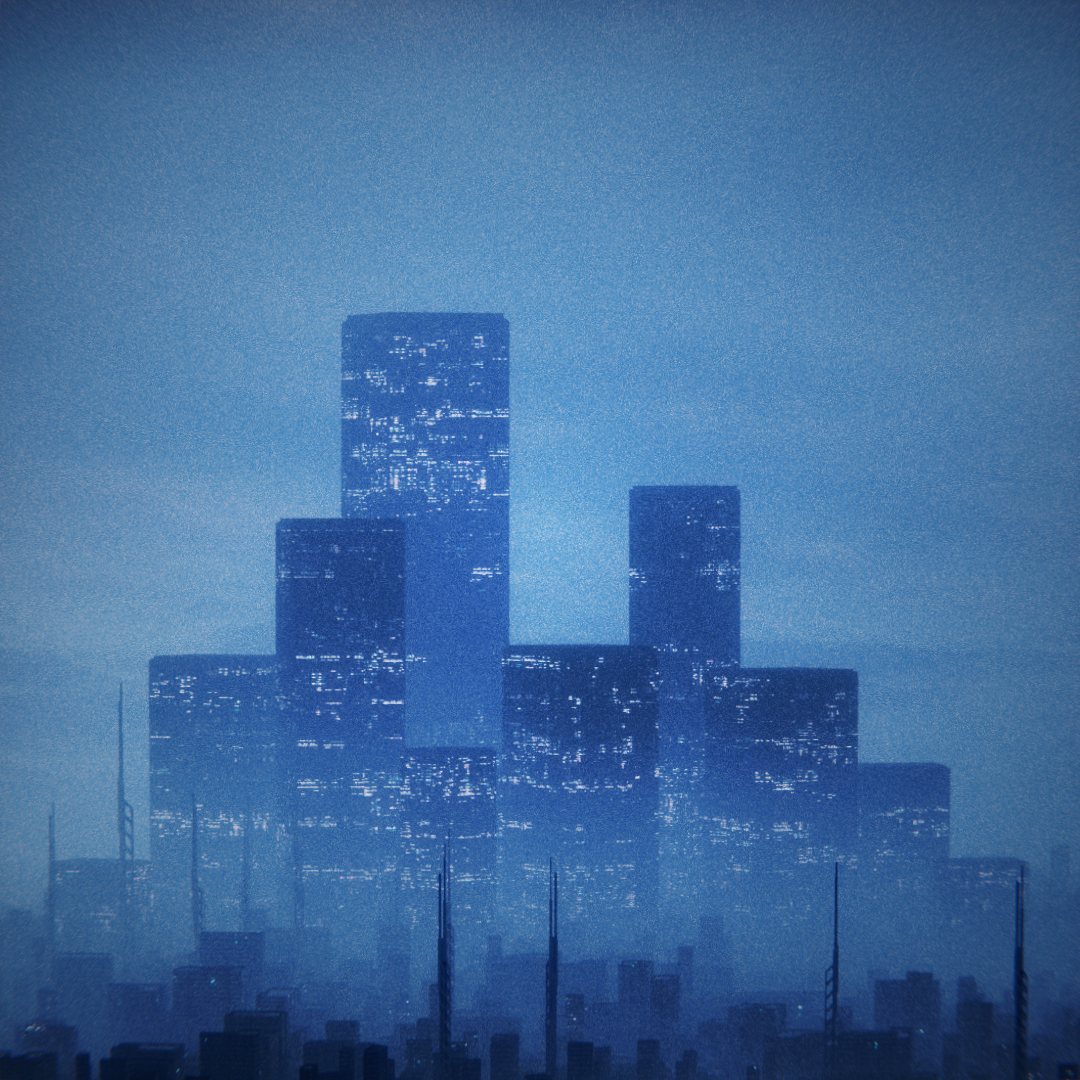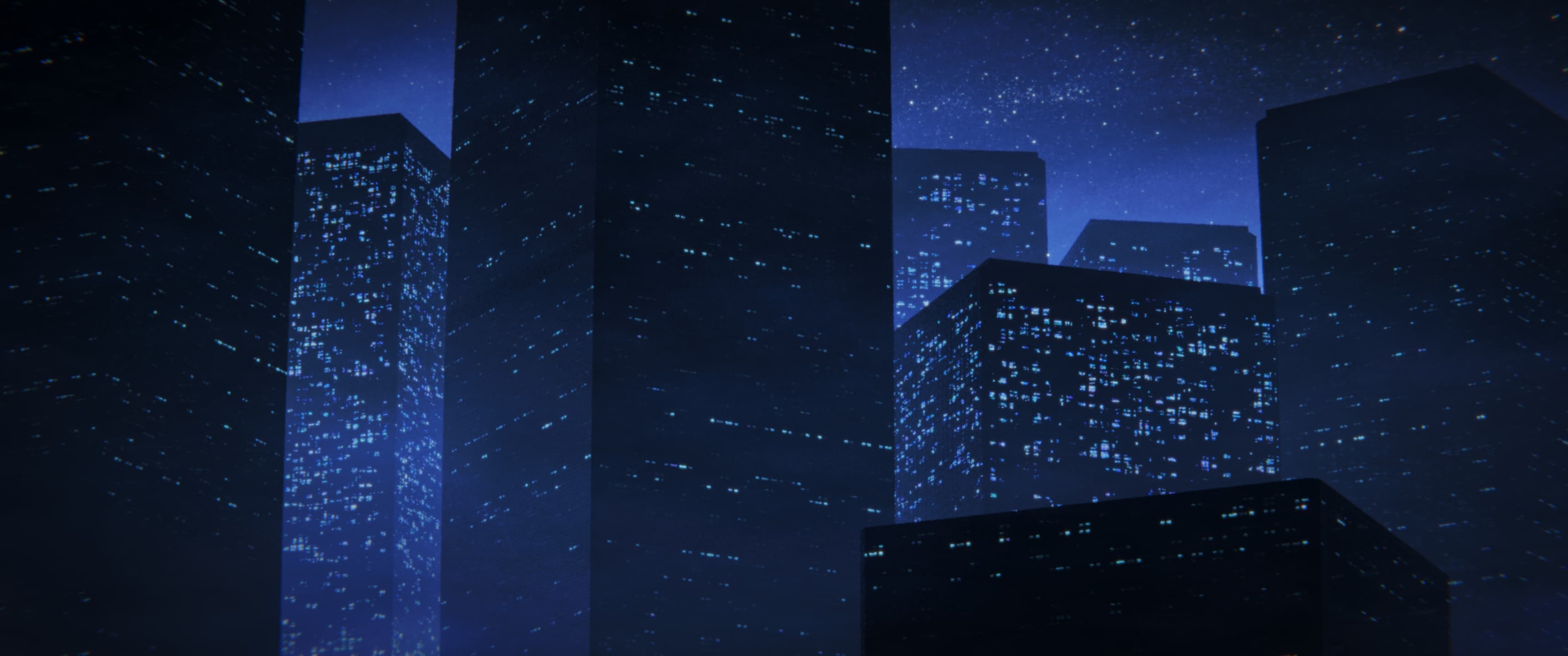retrofitted cyberpunk
aesthetics & themes
This last week, I was listening to episode 102 of Brandon Sanderson’s podcast Intentionally Blank when an interesting conversation arose:
Brandon Sanderson: “I’ve been told you can’t call something modern cyberpunk. Cyberpunk ended in something like the late 80s early 90s and now it’s become a different thing. It’s like calling something that’s Contemporary, Modernist, where Modernist is a specific time period.” Dan Wells: “Yeah, and frankly Modern as an art style and architectural style is also a stupid name because it became obsolete almost instantly…” (link)
Aside from the fact that yes, “Modernist” art is a horrible name for an art movement, this conversation left me very confused. I had no idea that people were calling cyberpunk modern cyberpunk; or even that this was a discussion to be had. I knew that cyberpunk as a term was made in the 80s with books like Neuromancer, but the connection to the state of the genre in 2023 seemed like a faint line.
(bad naming conventions is kind of a theme here, as a little before this Dan Wells expresses his agitation for Cyberpunk 2077’s name. Like I understand why it was named like that, but seriously… it’s like if Bioshock Infinite was named Steampunk 1912.)
I wouldn’t say that I’m exactly a big fan of cyberpunk. I mean, I like the genre and some of its aesthetics, don’t get me wrong… but I really have no desire to interact with more media and play games such as C2077 or… huh. Is that the only cyberpunk game?
what even is cyberpunk?
It seems like for the most part in popular culture, cyberpunk is when there’s a blinding neon blue/purple city or when you attach an antenna to your head to, I don’t know, pick up more Signals because you’re a cyborg.
 I’m guilty of this too, but making giant buildings is fun! maybe that’s what all this is about…
I’m guilty of this too, but making giant buildings is fun! maybe that’s what all this is about…
While it’s true that those things may be cyberpunk in aesthetic, they have little to do with the core thematic elements of cyberpunk.
Okay, so what are they?
While I can’t really give you a strict definition of cyberpunk, as with all literary genres, it’s nebulous and has expanded a lot from its origins, I can give you an overview.
The most popular definition of cyberpunk is: “high tech, low life,” where people live bad quality lives with high quality technology. But it started out as an exploration of advancing technology and culture, which was happening a lot during the 80s. Writers took this and expanded it into the far future, showing what it could mean for society when mega corporations control the lives of people, often through use of technology. From there, it spread to explore the relationship between technology and humanity, existentialism and transhumanism.
If you remove the technological aspect of cyberpunk from its definition, then The Lorax is undoubtedly cyberpunk. The citizens of Thneedville are living in a corporate hellscape where they have to pay for air. I say this because it sounds weird, but it’s something that should be explored.
(The podcast opened my eyes to the origins and themes of cyberpunk. I highly recommending listening if you’re interested in learning more about it!)
sci-fi as prophecy
There’s a really weird phenomenon that happens where people actively try to work towards creating the fictional worlds depicted in scifi. While some scifi futures are absolutely things that we should strive for, it really doesn’t make any sense to strive for like, what the most popular scifi thing is. There’s a famous tweet about this.
(a lot of scifi is really optimistic, so it’s so weird and scary to see companies going in the direction of one of the only bleak and pessimistic genres)
Meta is probably the biggest example of this. They completely missed the mark when they rebranded and invested billions of dollars into the Metaverse. Now in Snow Crash, (the book in which the term Metaverse comes from) the Metaverse isn’t really a particularly bad thing, but is more like a digital mirror to the dystopian world that the characters live in.
Cyberpunk is the dreams of the future from the 80s—and they don’t really fit today. We’ve gone past that era. 1984 happened. 2001 happened. 1984 and 2001: A Space Odyssey have accurately predicted much, but they aren’t prophecies.
Now I understand cyberpunk as an aesthetic genre. Neon lights, Japanese signage, giant holograms in cities made up of skycrapers—when you think about it, it’s so distinctly 80s. But I think expressing it just as an aesthetic really makes it bland.
I’m not saying to abolish the aesthetics—I do really enjoy them. But there should be more integration of thematic elements. What does it truly mean to have human lives controlled by mega-corps? It could mean that there’s cool neon signs everywhere, or it could mean that there are corporations that have profits higher than most countries GDP. The latter doesn’t necessarily have skyscrapers, but it does have have the potential for a theme.
beyond cyberpunk
I think this same problem rings true for a lot of different “-punks,” such as Steampunk and Solarpunk. Diluting these potentially complex literary genres into just “Steampunk is when there are gears” and “Solarpunk is when there are windmills,” really ruins the innovation that takes place within these genres. That’s like, the whole point of them. They’re built on themes, not aesthetics. Cyberpunk doesn’t have to look like Blade Runner. It could look like William Gibson’s the Peripheral, which is an equally cyberpunk story.
 A frame from Chobani’s solarpunk ad Dear Alice. this is a whole nother topic…
A frame from Chobani’s solarpunk ad Dear Alice. this is a whole nother topic…
As a primarily visual artist, this feels kinda insane to write. I love the aesthetics of these genres. But I know that it’s not all that they are, and behind the aesthetics, there’s such a complex, rich, and beautiful potential for storytelling.
